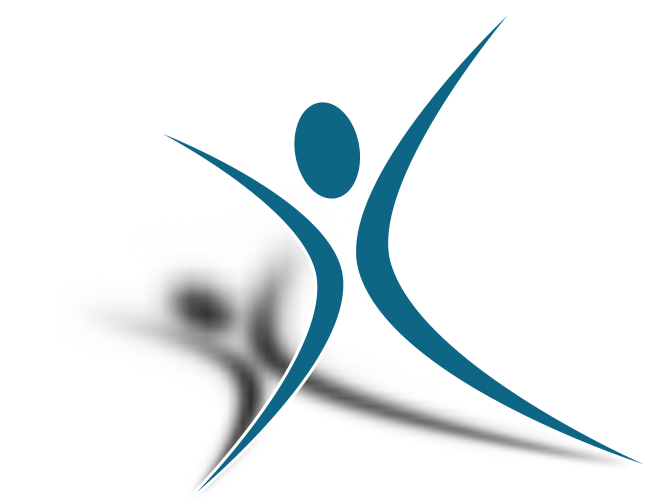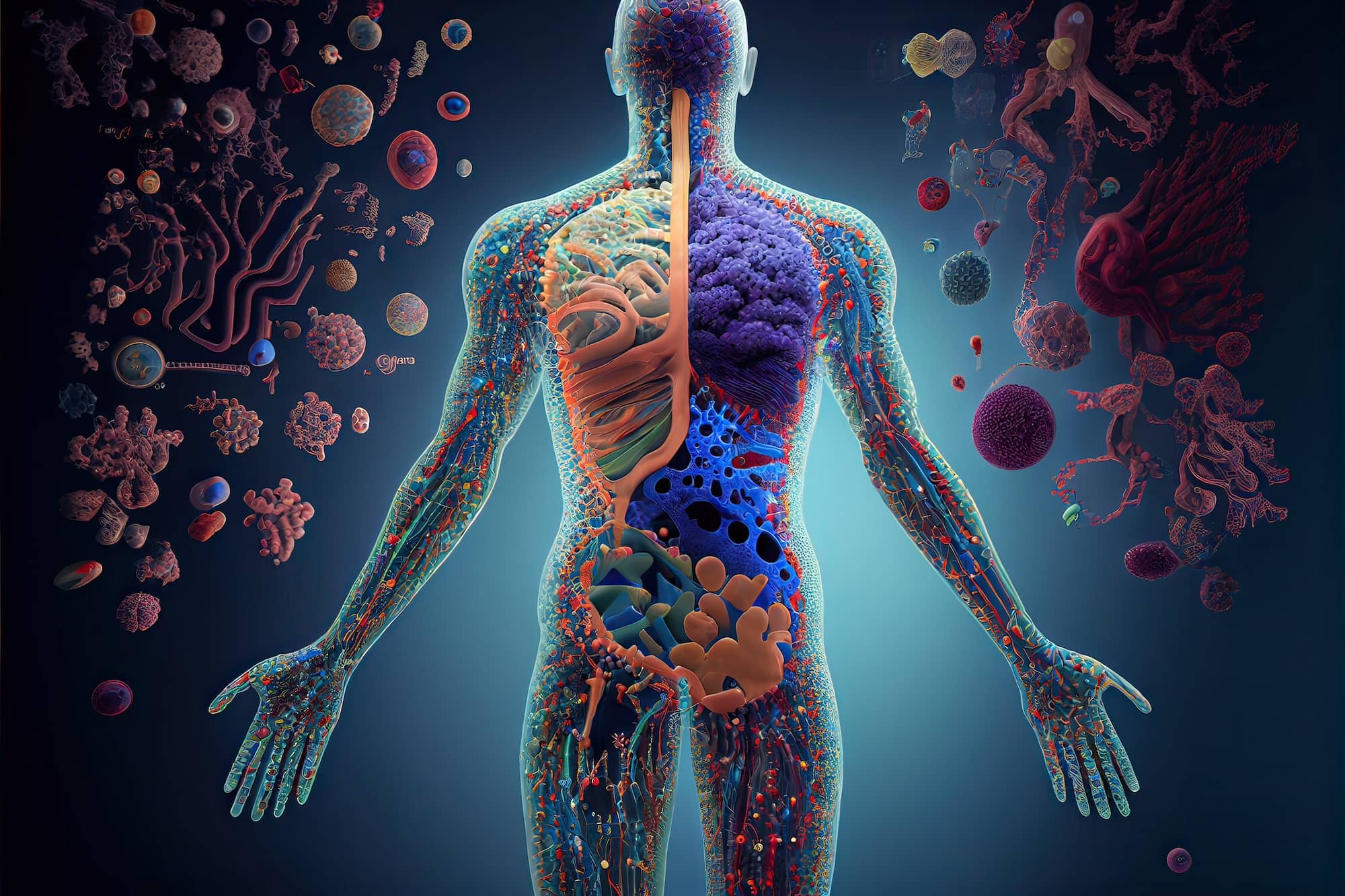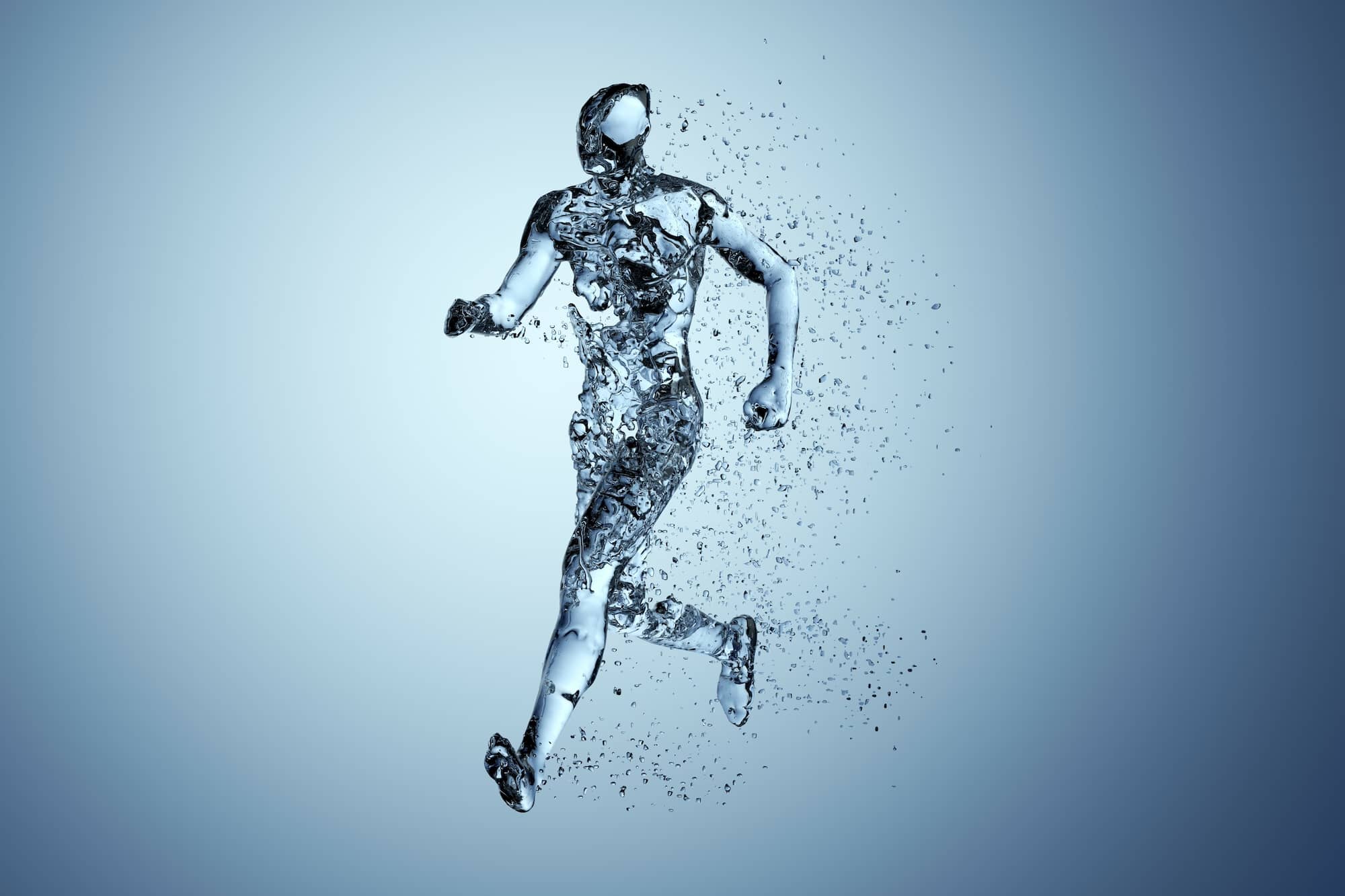Posts by Dr. David Basco
Halloween
Halloween brings excitement with trick-or-treating, costumes, and festive activities, but it can also put stress on your spine. Whether you’re walking long distances with your kids, carrying heavy bags of candy, or setting up decorations, it’s essential to protect your back and posture during these fun events. Here are some chiropractic tips to help you enjoy Halloween without unnecessary aches and pains.
1. Use a Backpack or Rolling Bag for Candy
Carrying heavy bags of candy in one hand can strain your shoulders and spine. Opt for a backpack to distribute the weight evenly or use a small rolling bag to reduce stress on your body. If kids are carrying candy, check their bags periodically to ensure they’re not too heavy for their size.
2. Wear Supportive Shoes
If you’re out trick-or-treating, you’ll likely walk a lot. Avoid footwear that lacks support, like flip-flops or flat shoes, which can lead to foot pain and misalignment in your spine. Choose cushioned, supportive shoes that will keep you comfortable and protect your posture throughout the night.
3. Stretch Before and After Walking
Long walks, especially in the cold, can tighten muscles and leave you stiff. Take a few minutes to do some light stretching before heading out. After the festivities, stretch again to keep your muscles loose and prevent back or joint pain.
4. Lift Decorations Properly
When lifting pumpkins or other heavy Halloween decorations, use your legs, not your back. Bend your knees, keep the object close to your body, and avoid twisting your torso. These simple adjustments will reduce the risk of back strain.
5. Take Breaks to Prevent Fatigue
If you’re walking through neighborhoods or setting up elaborate decorations, remember to take breaks. Fatigue can lead to poor posture and increase the risk of injury. Give yourself time to rest, hydrate, and stretch if needed.
6. Schedule a Chiropractic Adjustment
Even with precautions, festive activities can take a toll on your body. A chiropractic adjustment can realign your spine, relieve tension, and prevent minor aches from turning into chronic problems.
By following these tips, you can keep your spine healthy and enjoy all the fun Halloween has to offer. Stay active, but protect your body to ensure a pain-free, festive season!
Click here to contact our Office or call 510-523-6773
Immune Function
Chiropractic care, often associated with relieving back pain and improving spinal health, plays a more significant role in overall wellness than many realize. Recent research highlights how chiropractic adjustments can boost immune function, providing a holistic approach to health that goes beyond pain management.
The immune system is our body’s defense against infections and diseases. It works tirelessly to identify and destroy harmful invaders like bacteria and viruses. However, a compromised or weakened immune system can lead to increased susceptibility to illnesses. This is where chiropractic care steps in.
The central nervous system, which includes the brain and spinal cord, controls every function in our body, including the immune system. When the spine is misaligned, it can disrupt the communication between the nervous system and the immune system, potentially weakening the body’s ability to fend off illness. Chiropractic adjustments correct these misalignments, or subluxations, restoring proper nerve function and, consequently, enhancing immune response.
Several studies support the connection between chiropractic care and improved immune function. For instance, research published in the Journal of Manipulative and Physiological Therapeutics found that chiropractic adjustments can influence specific immune system components, such as increasing the production of white blood cells. White blood cells are crucial for fighting infections, and an increase in their production suggests a more robust immune response.
Another study conducted by Dr. Ronald Pero, a leading cancer prevention researcher, revealed that individuals who received regular chiropractic care had a 200% greater immune competence than those who didn’t. His findings suggest that spinal adjustments may not only help maintain a well-functioning immune system but also potentially protect against illnesses.
Chiropractic care promotes overall wellness by reducing stress.
Stress is known to weaken the immune system. Chronic stress leads to the release of cortisol, a hormone that can suppress immune function. By alleviating physical stress through spinal adjustments, chiropractic care helps to lower cortisol levels, thereby supporting a stronger immune system.
Incorporating chiropractic care into your wellness routine is a proactive step towards enhancing your body’s natural defense mechanisms. Regular adjustments can keep your spine aligned, ensuring that your nervous system communicates effectively with your immune system. As a result, your body is better equipped to prevent illness and maintain optimal health. With the backing of emerging research, chiropractic care stands out as a powerful tool in supporting and boosting immune function, offering a holistic approach to staying healthy year-round.
Click here to contact our Office or call 510-523-6773
Arthritis
Chiropractic treatment offers a holistic approach to managing arthritis, focusing on improving joint function, reducing pain, and enhancing overall mobility. Chiropractic care can be a valuable component of a comprehensive treatment plan, helping individuals with arthritis lead more active and pain-free lives.
One of the primary benefits of chiropractic treatment for arthritis is its emphasis on spinal adjustments. These adjustments aim to correct misalignments in the spine, which can alleviate pressure on the nervous system and improve joint function. When the spine is properly aligned, the body’s ability to heal and function optimally is enhanced. For arthritis patients, this can mean reduced pain, less stiffness, and improved range of motion.
Dr. Basco uses manual therapy techniques, such as joint mobilization and soft tissue manipulation, to address the symptoms. These techniques help to increase joint flexibility, reduce inflammation, and improve circulation in the affected areas. By improving blood flow, chiropractic care can promote the body’s natural healing processes, helping to repair damaged tissues and reduce the severity of symptoms.
In addition to spinal adjustments and manual therapies, chiropractors often provide personalized exercise programs designed to strengthen the muscles surrounding the joints. Stronger muscles can better support the joints, reducing the strain placed on them and, consequently, the pain associated with arthritis. These exercise regimens are typically low-impact, focusing on improving flexibility, balance, and strength without exacerbating joint pain.
Dr. Basco also emphasizes lifestyle modifications that can help manage arthritis symptoms. This may include recommendations for ergonomic changes in daily activities, dietary advice to reduce inflammation, and stress management techniques. Chiropractors take a whole-body approach, addressing not only the physical aspects of arthritis but also the lifestyle factors that can influence the condition.
Moreover, chiropractic treatment is drug-free, making it an appealing option for those seeking to avoid the side effects associated with long-term medication use. By focusing on natural methods of pain relief and joint function improvement, chiropractic care can be an effective complement to other arthritis treatments, such as physical therapy, medication, or surgery.
Dr. BascoArthritis offers a multifaceted approach to managing arthritis. Through spinal adjustments, manual therapies, exercise, and lifestyle advice, chiropractors can help individuals with arthritis improve their joint function, reduce pain, and enhance their overall quality of life. This holistic, non-invasive approach makes chiropractic care a valuable option for those looking to manage arthritis naturally and effectively.
Click here to contact our Office or call 510-523-6773
Hydration and Spinal Health
Proper hydration is crucial for overall health, but its significance for spinal health is often overlooked. The spine, a complex structure of bones, discs, and nerves, relies heavily on hydration to function optimally. Drinking enough water can prevent back pain and support spinal integrity, enhancing overall well-being.
The spinal discs, located between the vertebrae, act as cushions to absorb shock and facilitate movement. These discs are primarily composed of water, making hydration essential for their health. When you’re adequately hydrated, the discs maintain their height and flexibility, effectively absorbing impact and reducing the risk of injury. Conversely, dehydration can cause these discs to lose water content, leading to reduced shock absorption and increased susceptibility to wear and tear. Over time, this can result in conditions like herniated discs or degenerative disc disease.
Hydration is also vital in nutrient transport and waste removal in spinal tissues. Adequate water intake ensures that essential nutrients reach the spinal discs, supporting their repair and regeneration. Additionally, water helps remove metabolic waste products, which, if accumulated, can contribute to inflammation and discomfort in the spine.
Beyond the discs, the spinal muscles and ligaments also benefit from proper hydration. These tissues require water to maintain elasticity and strength. Dehydrated muscles are more prone to cramps and spasms, which can lead to back pain and restricted mobility. Ligaments, which connect bones and support the spine, lose their pliability without sufficient hydration, increasing the risk of sprains and strains.
Daily activities, particularly during hot weather or intense physical exertion, can lead to significant fluid loss through sweat. This makes it even more critical to replenish lost fluids to keep your spine healthy. Aim to drink at least eight glasses of water a day, and adjust your intake based on activity level, climate, and individual needs. Foods with high water content, like fruits and vegetables, can also contribute to your hydration goals.
Incorporating hydration into your daily routine is simple but requires mindfulness. Start your day with a glass of water, carry a reusable water bottle, and set reminders if necessary. Pay attention to signs of dehydration, such as dry mouth, dark urine, or fatigue, and respond promptly by increasing your water intake.
In summary, staying hydrated is fundamental to maintaining spinal health. Adequate water intake supports the spinal discs, muscles, and ligaments, preventing back pain and promoting overall spinal integrity. By prioritizing hydration, you’re investing in a healthier spine and a more comfortable, active lifestyle. Drink up and give your spine the support it needs to keep you moving pain-free.
Click here to contact our Office or call 510-523-6773
M.J. Serafim Fennick
Dr. Basco has a very good manner. I returned to him after a long time with no chiropractic, with a bad problem. Scoliosis apparently caused sciatica. I can give 5 stars when I clearly notice progress- he said it may take some months to clear up, possibly……….
the above is from about a year ago…
May 21,2024
Now I am following up with a rating of at least 5 stars! As anticipated above, it took some months. In the Summer I obtained scoliosis X-rays. Dr. Basco took a good look and noted much more than the radiologist had logged. It was determined that there was degeneration sufficient for use of the DRX9000. So we added that to our weekly sessions. The sessions are unusual: often very peaceful and bringing forth various sensations. Some of these were intense but never intolerable. Afterward, after adjustments, there was sometimes more mobility for a while. but on the whole mobility was being curtailed until the middle of winter, which corresponded also to a special prayer event,(but that could be the subject of a different testimonial). Mobility gradually began to increase, and the sciatic sensations gradually subsided- they had been almost constant. They were not intense. I classified them with a nurse practitioner as a number five on a scale of 10. Additionally, I believe that embracing a lower carbohydrate anti-inflammatory diet had something to do with the lack of intensity of the sensations. Whereas many people that I encounter speak of these sensations as being, quite uncomfortable.
So, the upshot at this point is that considerable progress has been made. And I continue to have the weekly sessions. Who knows, maybe my scoliosis will undergo considerable change. In all probability it has straightened out enough for there not to be the pinching of the nerve. But I’m not running to get another X-ray to verify that at this time . Thank you Dr. Basco, good friend. And thank God, friend of all!
Nutrition
Nutrition plays a pivotal role in maintaining optimal health and well-being, influencing various bodily functions and processes. Proper nutrition provides essential nutrients that support growth, repair tissues, boost immunity, and sustain overall vitality. However, many individuals struggle to achieve balanced nutrition due to busy lifestyles, dietary preferences, or misinformation. This is where chiropractic practitioners can significantly assist their patients in achieving better health outcomes through education, guidance, and personalized nutritional recommendations.
Chiropractic practitioners are well-positioned to address nutritional concerns as they typically have a holistic approach to healthcare, focusing on the body’s innate ability to heal itself when provided with the right conditions. They understand the intricate connections between the spine, nervous system, and overall health, recognizing that nutrition plays a fundamental role in maintaining spinal health and overall well-being.
One of the primary ways chiropractors can help is by educating patients about the importance of nutrition in supporting musculoskeletal health. Nutrient-rich foods such as fruits, vegetables, lean proteins, and healthy fats provide the building blocks necessary for strong bones, muscles, and connective tissues. By emphasizing the role of nutrition in preventing conditions like osteoporosis, arthritis, and muscle weakness, chiropractors empower patients to take proactive steps toward better health.
We can also assess patients’ dietary habits and provide personalized nutritional recommendations tailored to their specific needs and goals. Through detailed consultations and assessments, chiropractors can identify nutritional deficiencies, imbalances, or dietary patterns that may be contributing to musculoskeletal issues or other health problems. They can then develop individualized nutrition plans that focus on optimizing nutrient intake, improving dietary quality, and promoting overall wellness.
In addition to dietary recommendations, chiropractors may also incorporate nutritional supplements into their treatment plans to address specific health concerns or deficiencies. Supplements such as vitamins, minerals, and herbal extracts can complement a healthy diet and support the body’s natural healing processes. Chiropractors can guide patients in selecting high-quality supplements and advise them on proper dosages and usage to maximize effectiveness and safety.
Furthermore, chiropractic can enhance the body’s ability to absorb nutrients by optimizing spinal alignment and nervous system function. Misalignments in the spine, known as subluxations, can impede proper nerve signaling and disrupt the body’s ability to absorb and utilize nutrients efficiently. Through spinal adjustments and other chiropractic techniques, practitioners can restore proper alignment, alleviate nerve interference, and promote optimal nutrient absorption and utilization.
By integrating nutrition into their holistic approach to healthcare, chiropractors can empower patients to make informed choices that support their overall health and well-being. Through education, personalized guidance, and hands-on care, chiropractors play a vital role in helping individuals achieve and maintain optimal nutrition and vitality for a healthier life.
Click here to contact our Office or call 510-523-6773
Stress
Chiropractic care offers a holistic approach to combating stress, providing relief that goes beyond merely addressing physical symptoms. By targeting the root causes of stress and tension, chiropractic adjustments promote overall well-being and resilience. Here’s how chiropractic care can help alleviate stress:
- Spinal Alignment: Chiropractic adjustments focus on aligning the spine, which can become misaligned due to poor posture, repetitive motions, or injury. When the spine is properly aligned, it allows for optimal nerve function. Misalignments can cause nerve interference, leading to increased muscle tension. By realigning the spine, chiropractors help restore proper nerve flow, reducing tension and promoting relaxation.
- Muscle Relaxation: Often manifesting itself as muscle tension, particularly in the neck, shoulders, and back. Chiropractic adjustments release tension in the muscles, promoting relaxation and alleviating discomfort. Through manual manipulation techniques, chiropractors target specific areas of tension, encouraging muscles to relax and loosen up.
- Improved Circulation: It can also restrict blood flow, leading to feelings of fatigue and exacerbating tension in the body. Chiropractic care enhances circulation by removing restrictions in the musculoskeletal system. Improved blood flow delivers oxygen and nutrients to tissues more efficiently, promoting healing and reducing the physical effects of stress.
- Stress Hormone Regulation: Chronic stress can dysregulate hormone levels in the body, leading to a cascade of physiological effects. Chiropractic adjustments have been shown to influence hormone balance, particularly cortisol levels. Cortisol, often referred to as the stress hormone, can contribute to feelings of anxiety and tension when elevated. Regular chiropractic care can help regulate cortisol levels, promoting a more balanced stress response.
- Enhanced Nervous System Function: The nervous system plays a crucial role in the body’s stress response. When the spine is misaligned, it can create interference in the nervous system, exacerbating stress and tension. Chiropractic adjustments remove this interference, allowing the nervous system to function optimally. By improving nervous system function, chiropractic care helps the body better cope with stressors and maintain a state of equilibrium.
- Promotion of Mind-Body Connection: Chiropractic care emphasizes the connection between physical health and mental well-being. By addressing physical imbalances and promoting alignment, chiropractors help facilitate a harmonious mind-body connection. This integration supports overall resilience to stress and enhances the body’s ability to adapt to life’s challenges.
Chiropractic care offers a comprehensive approach to the management of this problem by addressing physical, neurological, and hormonal factors. Through spinal adjustments, muscle relaxation techniques, and promotion of overall well-being, chiropractors provide valuable support in combating the effects of this concern. Click here to contact our office or call (510) 523-6773
Posture
Postural disorders, characterized by misalignments or abnormalities in the body’s posture, can have a significant impact on overall health and well-being. Addressing these issues is crucial, and chiropractors play a pivotal role in providing active solutions to alleviate discomfort and improve posture.
Chiropractors actively assess and treat postural disorders by employing a hands-on, proactive approach. Through a thorough examination, they identify imbalances, misalignments, and musculoskeletal issues that contribute to poor posture. This active diagnostic process enables chiropractors to tailor their interventions to the specific needs of each individual, recognizing that postural problems can vary widely among patients.
Chiropractors actively engage with their clients to educate them about the importance of proper posture. This involves not only addressing the immediate issues but also actively empowering individuals to actively participate in their own postural health. Through active communication and education, chiropractors guide their patients in understanding the detrimental effects of poor posture on the spine, joints, and overall well-being.
One active method employed by chiropractors to address postural disorders is spinal adjustments. Through precise and targeted manipulations, chiropractors actively correct misalignments in the spine, promoting optimal alignment and reducing strain on surrounding muscles and joints. This hands-on approach actively restores proper biomechanics, allowing the body to function more efficiently and reducing the likelihood of further postural issues.
Chiropractors also actively incorporate therapeutic exercises into their treatment plans. These exercises are designed to strengthen muscles, improve flexibility, and actively promote better posture. By actively engaging patients in therapeutic exercises, chiropractors empower them to actively participate in their recovery, fostering long-term improvements in postural alignment and overall musculoskeletal health.
In addition to hands-on interventions, chiropractors actively collaborate with patients to develop personalized plans for postural improvement. This may involve lifestyle modifications, ergonomic adjustments, and active strategies to incorporate better posture into daily activities. This collaborative approach emphasizes the active role that individuals play in maintaining and sustaining the benefits of chiropractic care for postural disorders.
Furthermore, chiropractors actively advocate for preventive measures to avoid future postural issues. Through ongoing consultations and active monitoring, they guide patients in making active lifestyle choices that support good posture and overall spinal health. This proactive approach aligns with the philosophy of chiropractic care, which emphasizes not only the resolution of existing issues but also the prevention of future problems through active patient engagement.
Dr. Basco actively addresses postural disorders through a comprehensive and hands-on approach. His active involvement in diagnosis, education, hands-on interventions, and collaborative planning empowers individuals to actively improve their posture and enhance their overall musculoskeletal health.
Contact us by clicking here or call (510) 523-6773
Postpartum recovery
Postpartum recovery is a crucial phase for new mothers, encompassing physical, emotional, and mental aspects as they navigate the challenges of childbirth and early motherhood. While traditional methods focus on rest and nutrition, an emerging approach gaining recognition is postpartum chiropractic care, offering a proactive and holistic solution to enhance recovery.
Chiropractic care involves the manipulation of the spine and musculoskeletal system to promote overall well-being. In the context of postpartum recovery, chiropractors specialize in addressing the unique challenges faced by mothers after childbirth. One of the primary benefits of chiropractic care during this period is the alleviation of musculoskeletal pain, which is common among new mothers. The physical demands of pregnancy and labor can lead to misalignments in the spine and pelvis, contributing to discomfort and pain. Chiropractors use gentle adjustments to realign the spine, providing relief from postpartum pain.
Moreover, postpartum chiropractic care plays a vital role in restoring pelvic health. Childbirth can impact the pelvic floor muscles, leading to issues such as pelvic pain and incontinence. Chiropractors employ specific techniques to address pelvic misalignments, promoting optimal functioning of these muscles and aiding in the restoration of pelvic health.
The hormonal changes during pregnancy and childbirth can also affect the nervous system. Chiropractic adjustments help in optimizing nervous system function, contributing to improved overall health and well-being. This is particularly relevant for postpartum mothers dealing with issues like fatigue, mood swings, and disrupted sleep patterns. Chiropractic care aims to enhance the body’s natural healing mechanisms, fostering a quicker and smoother postpartum recovery.
In addition to physical benefits, postpartum chiropractic care addresses the emotional and mental well-being of new mothers. The transition to motherhood can be overwhelming, leading to stress and anxiety. Chiropractors create a supportive environment, offering guidance on posture, breathing techniques, and exercises that not only aid in physical recovery but also promote relaxation and stress reduction.
It is important to note that postpartum chiropractic care is a complementary approach that works in conjunction with traditional postpartum care methods. While it does not replace medical interventions when necessary, it provides an additional layer of support for mothers seeking a holistic and proactive approach to recovery.
In conclusion, postpartum recovery through chiropractic care offers a holistic and active solution for new mothers. By addressing physical discomfort, promoting pelvic health, optimizing nervous system function, and supporting emotional well-being, chiropractic care becomes a valuable ally in the journey to a healthier and more balanced postpartum experience. As awareness grows, more mothers are embracing chiropractic care as an integral part of their postpartum recovery strategy.
Golf Injuries
“Golf, a sport synonymous with tranquility and precision, also poses its share of physical challenges and potential injuries. Despite its leisurely pace, golfing’s repetitive motion and biomechanical demands can cause various types of injuries affecting different parts of the body.
One of the most common golf-related injuries involves the back. The rotational nature of the golf swing places immense stress on the spine, particularly the lower back. Golfers can experience strains, sprains, or herniated discs due to the force exerted during the swing motion. Poor swing mechanics or overuse can exacerbate these issues, leading to chronic pain and discomfort.
Moreover, the upper extremities, including the wrists, elbows, and shoulders, are susceptible to injuries due to the repetitive nature of swinging the club. Golfer’s elbow, akin to tennis elbow, is a prevalent condition characterized by inflammation and pain in the tendons on the inside of the elbow. Rotator cuff injuries and shoulder strains can also occur due to the repetitive stress of the golf swing.
The lower body is not immune either. Walking long distances combined with the force exerted during swings can lead to knee and hip injuries. Strained muscles, tendinitis, and stress fractures are common lower body injuries among golfers.
To prevent these injuries, golfers increasingly focus on proper technique, physical conditioning, and warm-up routines. Strengthening core muscles, maintaining flexibility, and incorporating exercises specifically targeting the muscles used in golf swings significantly reduce the risk of injury. Additionally, using proper equipment, such as clubs that fit the player’s physique and employing ergonomic techniques, can alleviate stress on the body.
When injuries occur, timely intervention is crucial. Rest, ice, compression, and elevation (RICE) are initial steps for acute injuries, followed by rehabilitation exercises and seeking professional medical advice if necessary. Physical therapists, chiropractors, and sports medicine specialists often play a pivotal role in the recovery process, employing targeted therapies to aid golfers in returning to the course safely.
Understanding the potential for injuries in golf underscores the importance of proactive measures to maintain physical health and performance. By implementing proper techniques, engaging in conditioning programs, and seeking appropriate care when needed, golfers can mitigate the risks associated with this elegant yet physically demanding sport, ensuring that their time on the green remains both enjoyable and injury-free.” Call (510) 523-6773










